AfrikaBurn 2026
Through The Prism
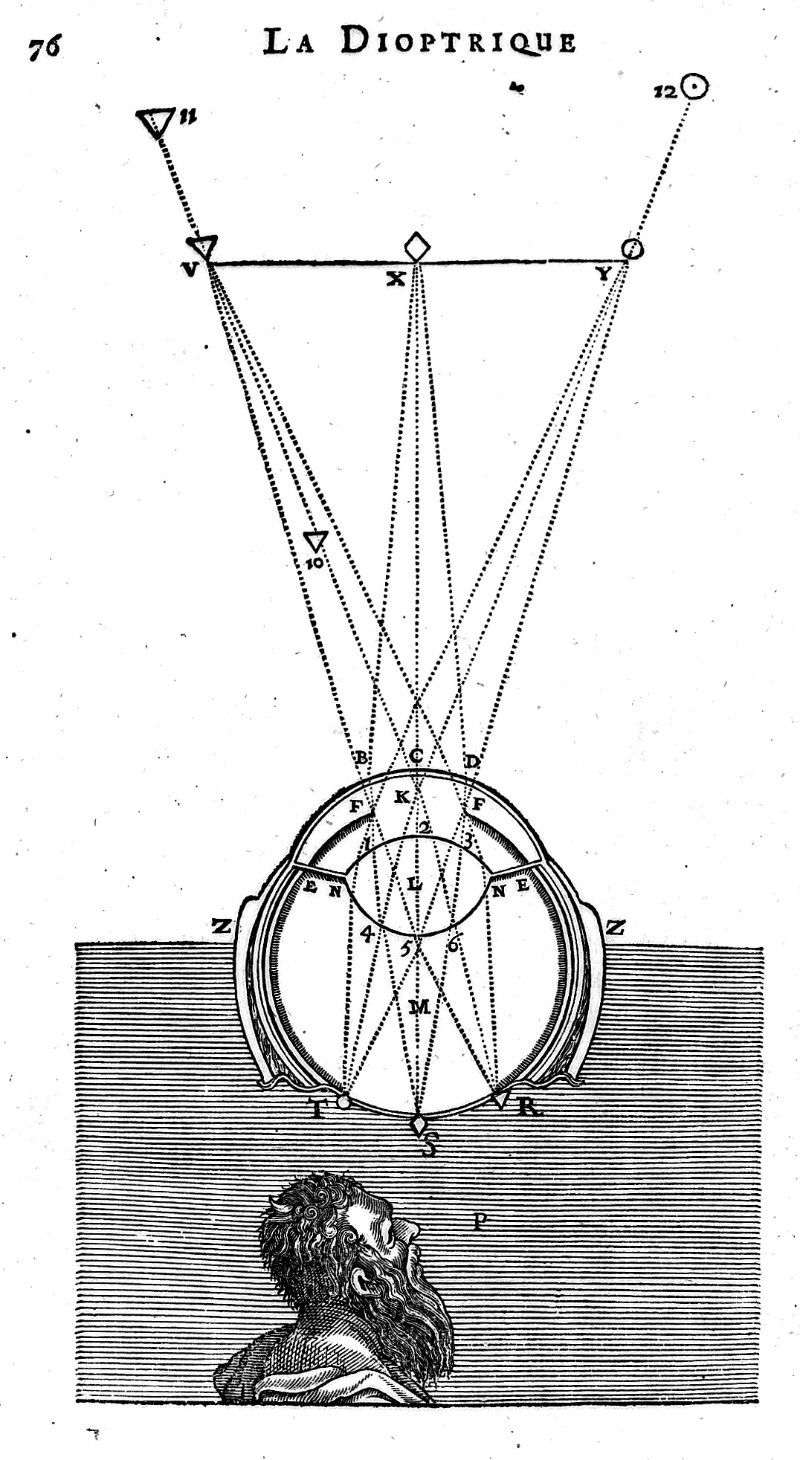
By: René Descartes 1637
We’ve transpired through the mysteries of S P A C E and CREATION, and now, as we splash Out Of The Blue, we invite you to step into being, Through The Prism.
This is where we begin: not with certainty, but with becoming, with something just on the edge of comprehension, a sound mistaken for song, a moment mistaken for meaning.
Before the Earth had four corners – before there were spaces and places, plants, people and stuff – before fame, fortune, and folly, power, corruption, and lies, before conventions and their centres, – there was simply ‘being’. The first beings on earth did not strive to become; they simply were. They existed on land, in water, atop skies and upon stars. They lived through light and dark, through fire and hunger, through fear and love – being and existing in the rawness of now, what?
They had no names, as they were the ones who named themselves and everything around them. They had no story, as it had not yet been lived or told. They had no words, because they were not formed, their spells yet to be cast. However, there was an undeniable fact: they were present.
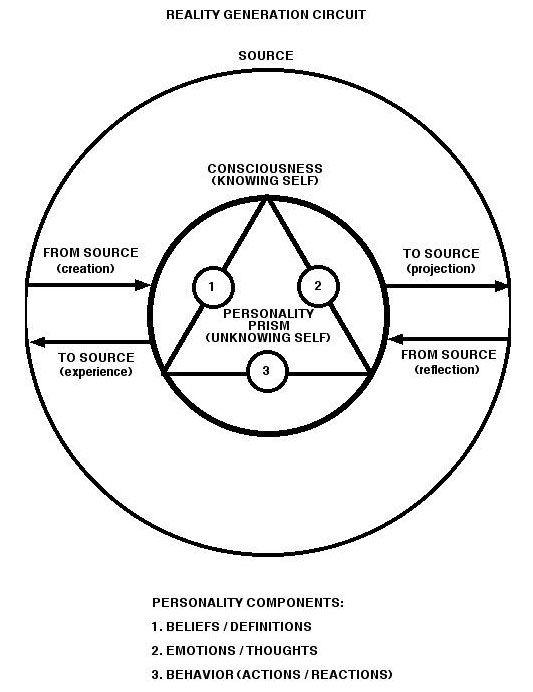
“[Humanity’s] greatness does not consist in being different from the animals that share the earth with them, but in being … conscious of things of which their environment has no inkling.”
– Gustav Heinrich Ralph von Koenigswald
Who are we?
What are we?
We are.
We are because we are seen.
We are seen because we are.
Our being is not defined, but felt; not measured, but moved through. Identity is not a destination; it is a prism: bending, fracturing, intersecting, reshaping light, and the ways of seeing.
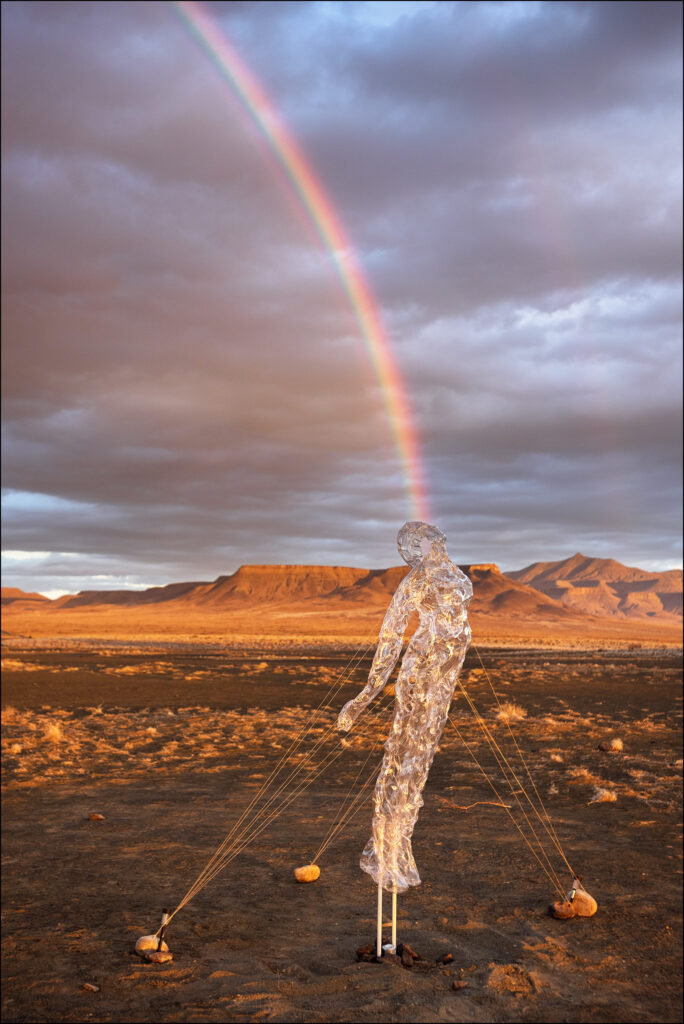
Photo: Steven Morrow
The idea draws from Descartes, whose work on light and optics intersects with his theory of self, “cogito ergo sum.”
“I think, therefore I am,” said the philosopher. “Light bends, therefore we see,” said the physicist. Somewhere in between, we find ourselves — not fixed, but refracted. We are because we think, but we are seen because we shimmer—like light through glass.
In this refracted vision, the eye is not merely a passive receiver but an active interpreter. Becoming, then, is filtered through experience, perception, and presence. (In fact, the whole sentence is: “dubito ergo cogito, cogito ergo sum”)
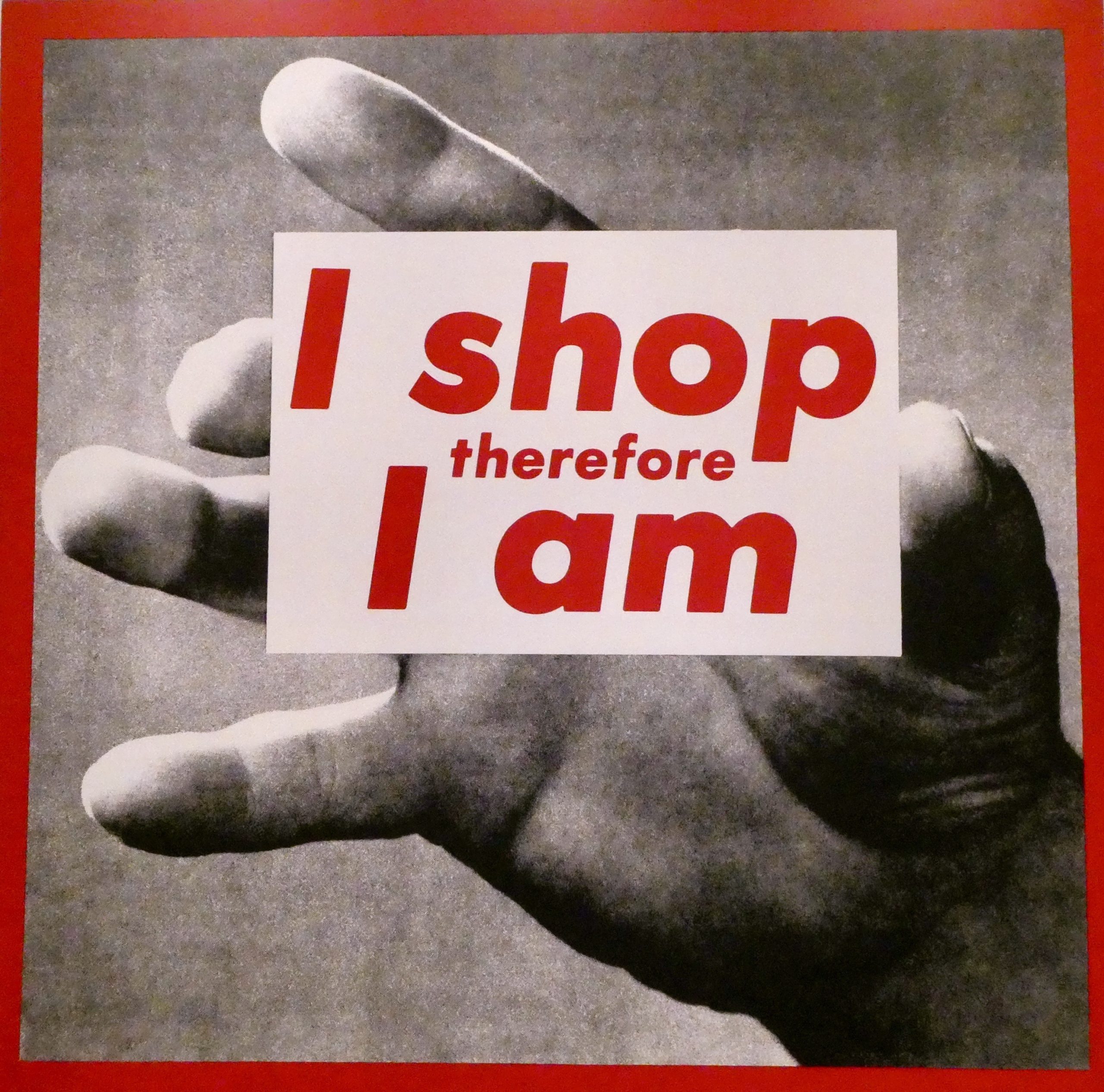
In the modern age of autonomy, individuality and independence, we are often pushed to define ourselves, identify, label, and brand ourselves.
Like a prism, we have many facets, refracting the many aspects of our being. We are not a “single story”* There is more to our lives than stereotypes; we can bring them to light. Have we forgotten that our personality is not for sale, our creativity is not a product, and our community is not a commodity?
*Chimamanda Ngozi Adichie
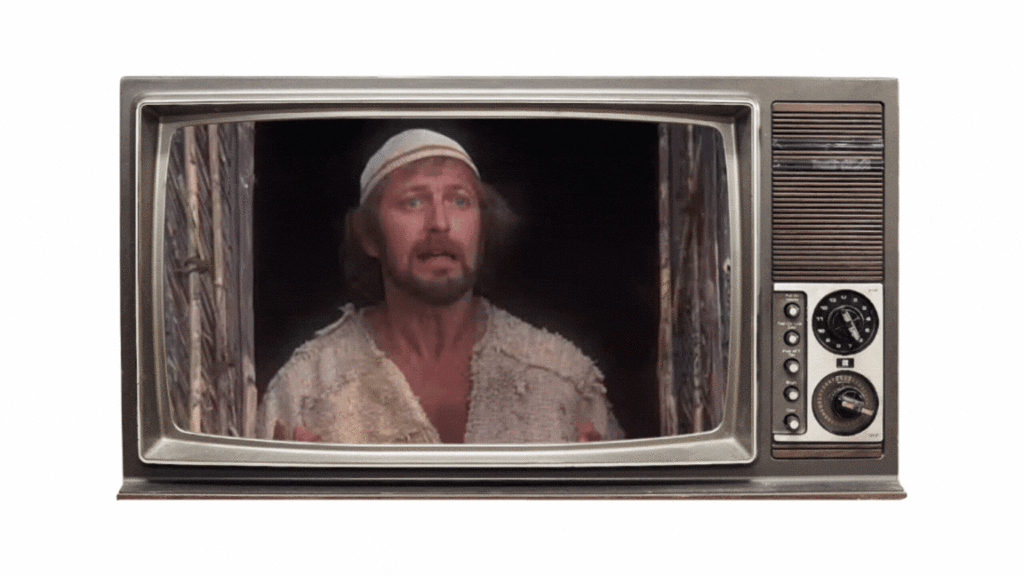
I am a glitch—a loose screw in the machine. I am a story in the clan’s imaginings, an adventure emerging in the collective memory. My identity is not defined in individuality – it is born in relation.
“As far as we can discern, the sole purpose of human existence is to kindle a light in the darkness of mere being.”
– Carl Jung in ‘Memories, Dreams, Reflections’
Umuntu Ngumuntu Ngabantu
(Zulu/Xhosa for: “A person is a person through other persons.”)
Being is not a performance of independence, but a practice of presence and reflection. Through this lens, light is not fractured; it is bent, shared, and carries us through the refracted landscape of becoming, in living colour.
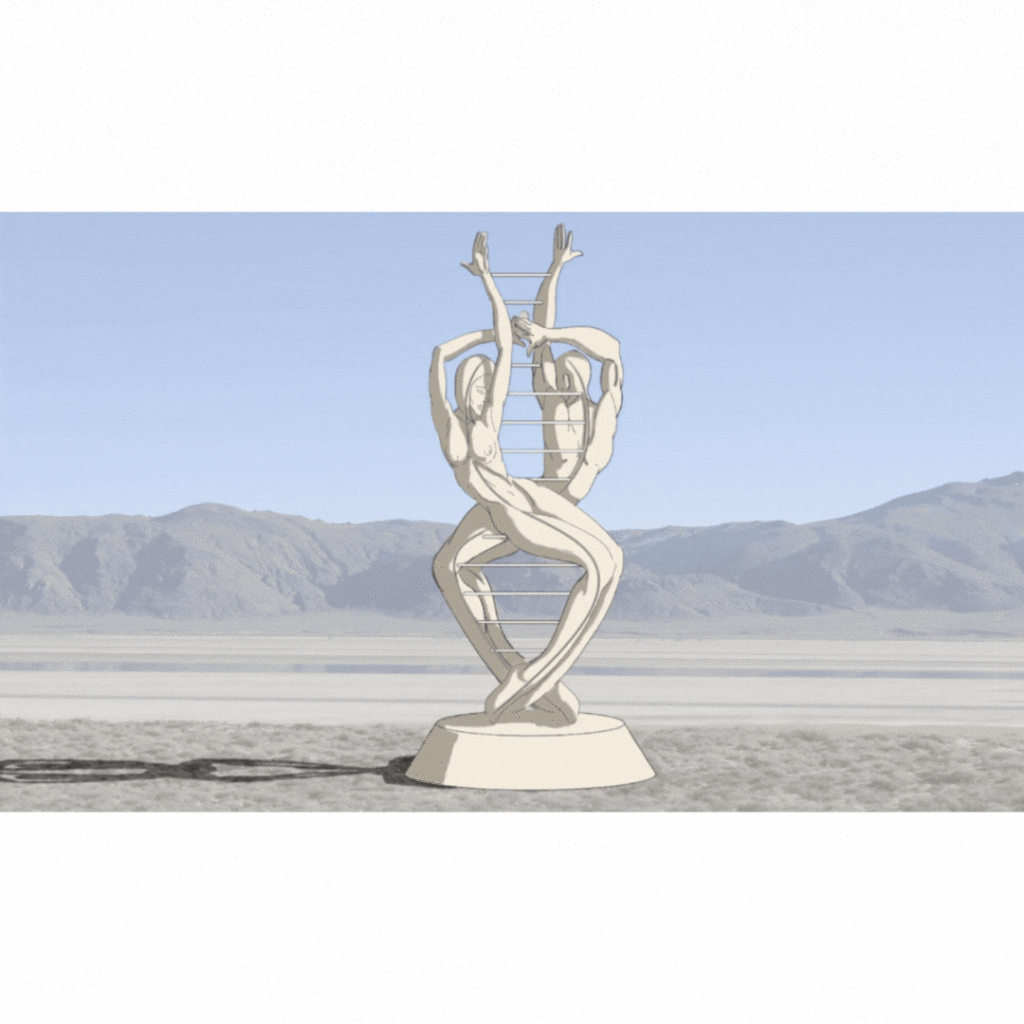
Built through a pandemic,
burnt in an enduring war.
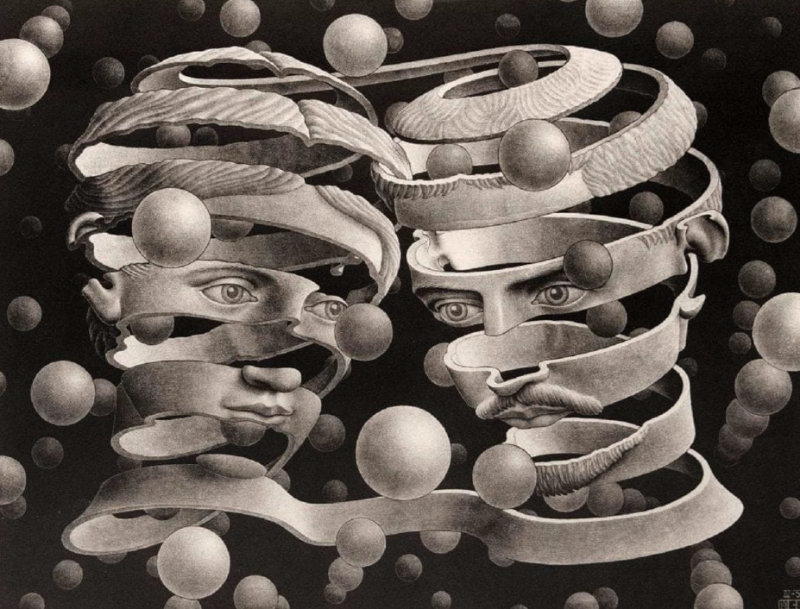
And what if it were the first time?
Your very first time?
What if you were to inhale the crispness of the first breath, listen to the first whispers of the stirred dust, take the first footstep of the first foot, hop on the first heartbeat, and let the rhyme carry you?
Who would you be, what would you do? – Would you twirl in the light, or tiptoe through?
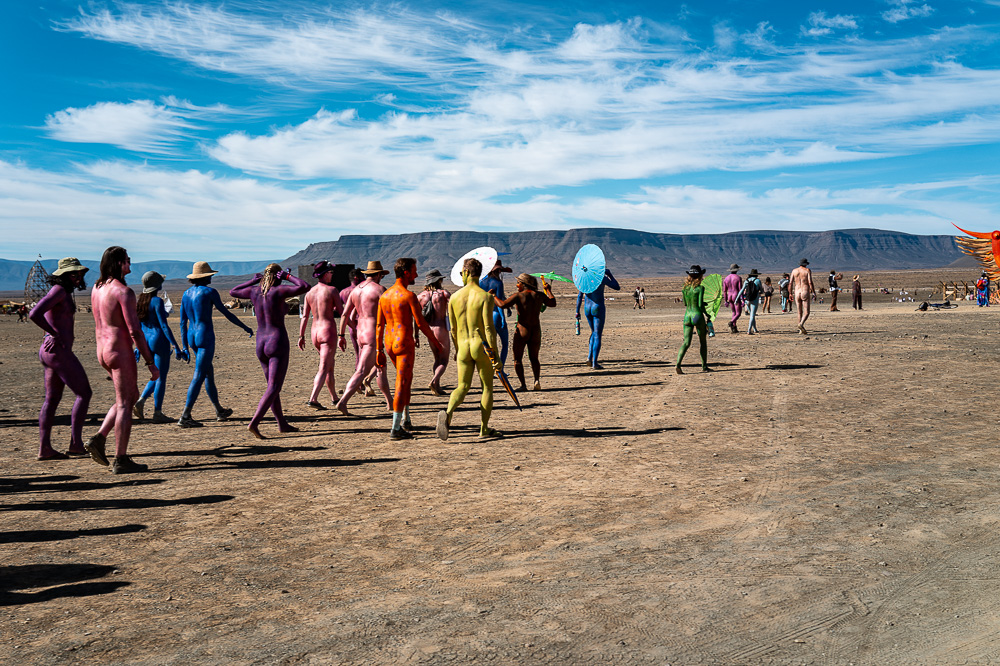
Photo: Nick Compton
This is an invitation to look, again and again, at identity, perception, and presence – as an incandescent spectrum of intersecting identities, refracting experiences of being.
This journey is not to define who we are, but to explore how we see, beyond objects and constructs.
Welcome to a wondering excursion through the prism
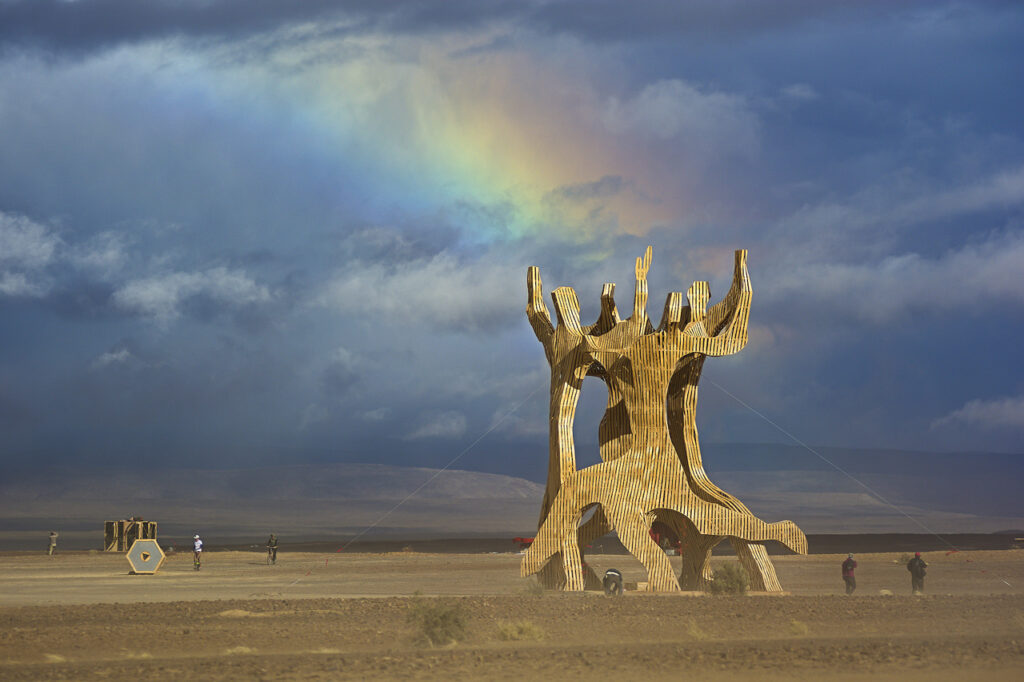
Photo: Steven Morrow
“Do the best you can until you know better. Then, when you know better, do better.”
— Maya Angelou
